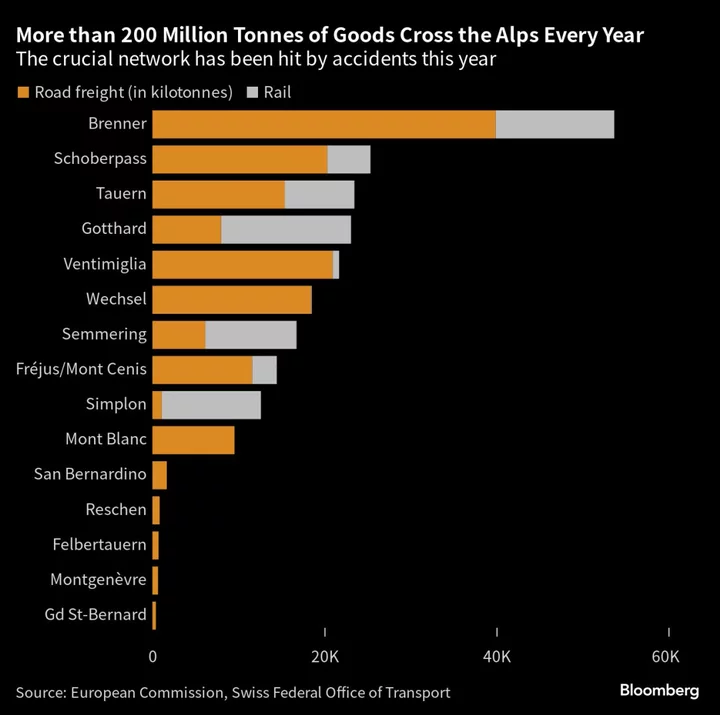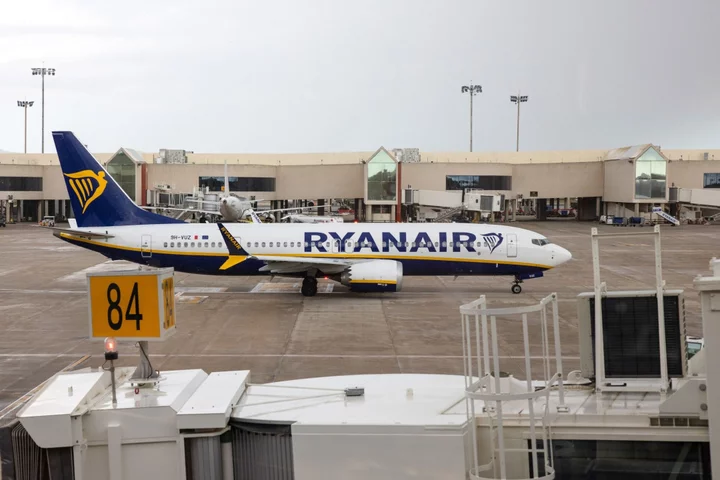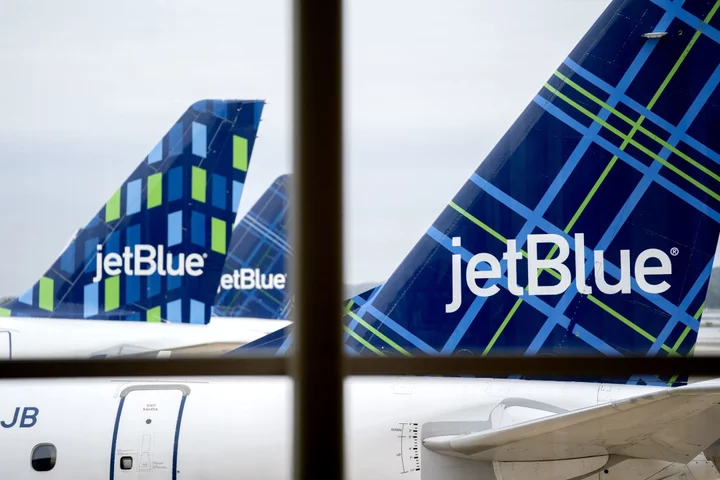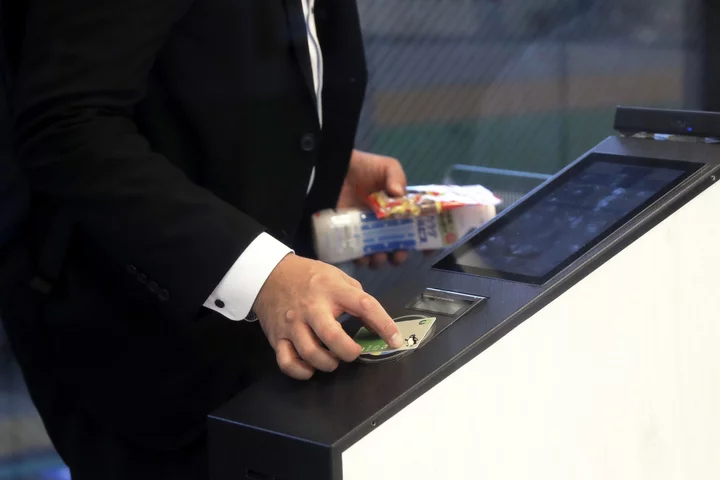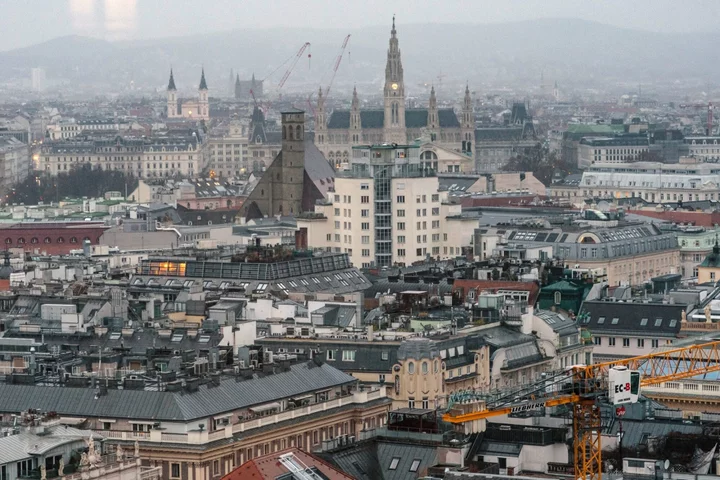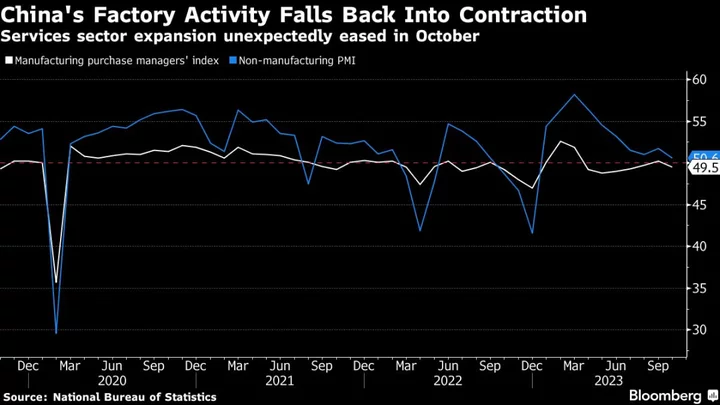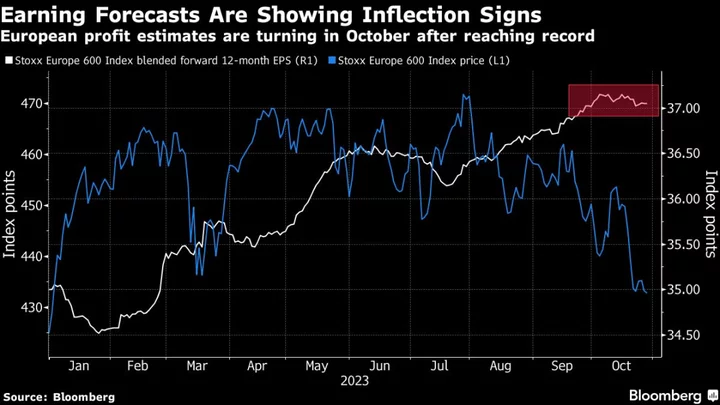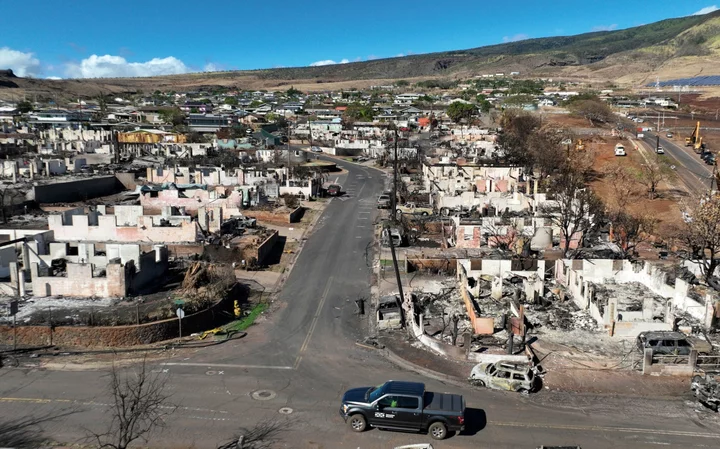When a landslide blocked an aging Alpine tunnel connecting Italy and France this summer, Livio Ambrogio knew what the fallout was going to be for his freight business: time and money.
The closure of the 8-mile long Frejus tunnel meant his logistics company had to reroute cargo through Switzerland, something that wasn’t just a hassle, but added an additional €10,000 cost per trip.
“When you stop the tracks because of a landslide in France, it reflects immediately on the road prices, which go up,” said Ambrogio, president of Ambrogio Trasporti SpA. “Of course, no customer will accept any price increase.”
The Frejus is part of a critical network of roads and tunnels that carry more than 220 million tonnes of goods across the Alpine mountain range every year. But this year’s landslide, as well as a train derailment in Switzerland and transit restrictions on another routes, have collectively snarled many of Europe’s critical trade arteries.
For businesses, it’s yet another headache amid lingering post-pandemic supply chain issues as well as higher costs for energy, raw materials and labor. And it’s the last thing needed in Europe, where manufacturing is already in a long-running slump and the economy is barely growing.
Italy is particularly exposed given its location, and this year’s issues are a potent reminder that the supply chains which serve as its economic lifeline to the rest of Europe are vulnerable and, in some cases, literally crumbling.
“The situation is extremely serious and Italy risks to get cut off from the rest of Europe,” said Silvia De Rocchi, regulatory and institutional affairs director at Captrain Italia, part of France’s state-owned rail company SNCF. “The bottlenecks are causing a loss of competitiveness of the logistic sector and therefore for the entire Italian economy.”
The 1,200 kilometer-long Alpine mountain range is a formidable barrier to travel and commerce that’s tested the logistical capabilities of countless civilizations.
Historic crossings have taken on a legendary status, particularly Hannibal’s elephant-driven expedition during the Second Punic War between Carthage and Rome. In 1800, Napoleon famously led an army through the St. Bernard Pass as part of his military campaign against the Austrians.
Today, a series of 15 tunnels and roads connect Italy — via France, Switzerland and Austria — to the rest of the €14.5 trillion ($15.5 trillion) European single market. And while modern engineering feats, like Switzerland’s Gotthard Base Tunnel, have dramatically cut down the length of such journeys, it’s not always smooth going.
The Gotthard, which opened in 2016, made headlines this summer for all the wrong reasons when a freight train carrying wine, soda and other goods bound for northern Europe derailed in August, causing severe damage in the world’s longest and deepest tunnel.
The accident forced the indefinite closure of one of its two rail tubes, which collectively carry 10% of all freight crossing the Alps. It won’t fully reopen until next year.
Some freight companies, like Italy’s Contship Group, shifted some of their goods to alternative routes like the Simplon pass, which also connects Switzerland and Italy. Chiasso-based Hupac Intermodal SA is among those sticking with the Gotthard, which is single-tracking about 100 trains per day through the undamaged tube. That’s giving Hupac about 90—95% of its usual capacity.
“From an operational point of view it is very complex and fragile, but the capacity is there and for the time being we are still running,” Hupac spokesperson Irmtraut Tonndorf.
Landslide
Two weeks after the Gotthard incident, a landslide in Eastern France blocked road and rail traffic through the Frejus tunnel, which carries 6% of all transalpine freight.
While the Frejus road tunnel has reopened, the rail line remains closed. Amid concern about congestion, France and Italy agreed to delay major work at the Mont Blanc tunnel that would have shut that route for more than three months. The 58-year-old underpass connecting the ski valleys of Courmayeur and Chamonix will still close for about seven weeks for other maintenance.
Meanwhile, transalpine disruptions continued to cascade this month in Switzerland, which was forced to temporarily shut the Gotthard road tunnel for five days after pieces of concrete fell from the ceiling. Ironically, nearby excavations for a second traffic pipe may have been the cause of the incident. Work has been suspended while authorities investigate.
Political Tensions
This chain of unexpected events highlights the fragility of the Alpine transportation network, and comes on top of long-term political tensions that have affected some routes.
On the eastern wing of the Alps, the Brenner pass continues to suffer traffic bottlenecks due to disagreement between Austria and Italy about the best way to mitigate carbon emissions. In recent years, queues of idling heavy goods vehicles waiting to cross the four-lane route have grown to as long as 70 kilometers.
The dispute emerged in the Austrian region of Tyrol through which millions of trucks and cars pass each year.
The solution — a €10.5 billion rail tunnel — is already under construction, but unfortunately it’s not due to be finished until 2032, and that’s barring any delays. Meanwhile, the persistent logistical snarls at the 30-kilometer pass are impacting a route that accounts for nearly a quarter of all transalpine freight.
As the dispute has escalated, so has the rhetoric. Italian Transport Minister Matteo Salvini said this month that Austria’s traffic restrictions violate European Union rules and are a “blatant abuse that must be resolved.”
Austria has defended its actions, citing in part environmental damage.
“People living there are suffering from the noise, traffic jams and air quality,” Energy Minister Leonore Gewessler told the Puls24 broadcaster. “More trucks cross here each year than all other passes put together. It’s a burden for the people.”
Meanwhile, businesses are worried about how they are going to move their products, supply their customers and keep their workers in jobs. In Italy, surrounded by the Mediterranean on three sides and locked in by the Alps to the north, the concerns are especially heightened.
“Europe is our life,” said Ambrogio. “Our customers are in Europe.”
--With assistance from Marton Eder, Alberto Brambilla and Demetrios Pogkas.

